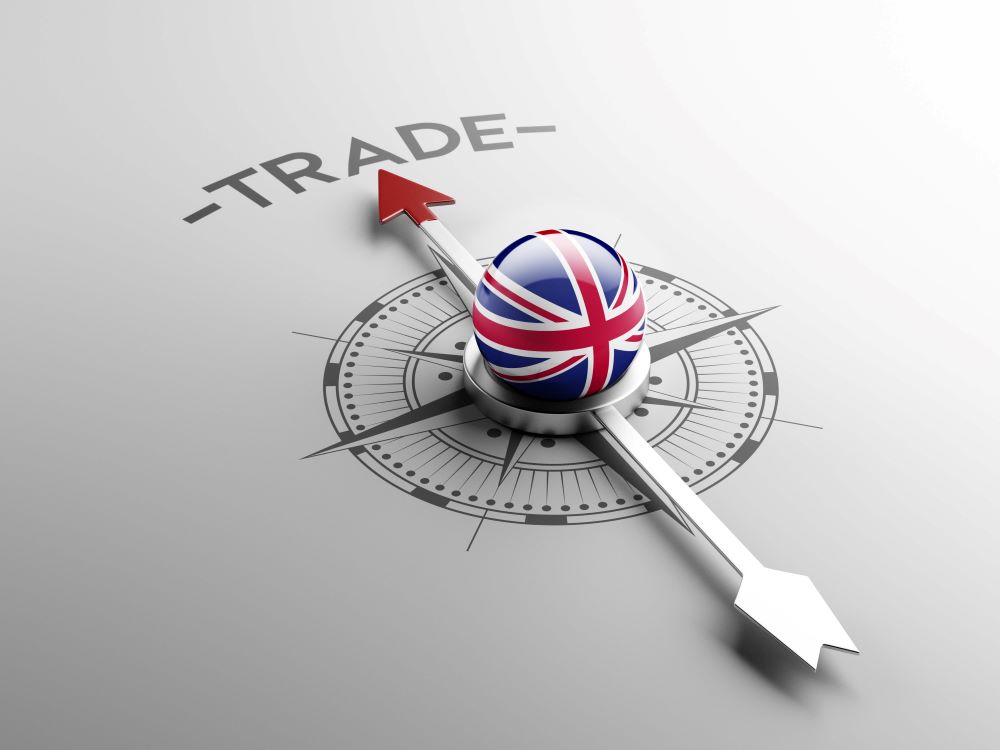
The majority of the British public support the country signing free trade agreements (FTAs) with countries outside of the EU, a government survey has found.
The sixth ‘wave’ of the public attitudes to trade tracker (PATT), which was originally run by the Department for International Trade (DIT) but is now conducted by its successor, the Department for Business and Trade (DBT), was published today (17 August).
It found that over two thirds of the public support FTAs with non-EU countries (67%), up slightly from the previous PATT (‘wave 5’), which was published in November last year. The all-time peak of support for FTAs came at 70% in February 2022 (‘wave 4’).
Only 4% of the public said they opposed non-EU FTAs in the most recent poll.
Positive impact
The most frequently stated reasons for supporting FTAs were:
- Strengthening the UK economy (58%)
- Improving trade opportunities (41%)
- The UK being able to set its own trade policy (36%)
- Lowering prices for consumers (36%)
A potential reduction of safety and food standards was the main reason for any opposition to FTAs (41%), even if disapproval was muted. This was followed by negative impacts on the environment (37%).
Encouraging
The director general of the Institute of Export & International Trade (IOE&IT), Marco Forgione, was pleased to see that public support for trade deals rising, saying:
“It is encouraging to see public support for UK FTAs has increased. It is a crucial time to seize this momentum and support businesses on how they can most effectively make use of these new trade agreements.
“International trade is a ‘force for good’ and trade agreements stimulate economic growth throughout the UK, creating jobs, lowering prices for consumers, and promoting innovation and technological advancement.”
Swiss bliss
Switzerland was the most popular country in terms of potential partners for future trade deals, with 64% in support. The US was the second most popular (63%), while half of the public (50%) backed an FTA with India.
Support for FTAs with all the countries to have been included in multiple PATTs has increased, with backing for a US deal increasing by six percentage points and India up by 10. This was the first time Switzerland was included in the survey.
Support for deals with Saudi Arabia and China was lower at 42% and 32% respectively. Most Brits aren’t aware of the Gulf Cooperation Council (GCC), of which Saudi Arabia is a member and with which the UK is currently negotiating an FTA. Over half (56%) said they weren’t aware of the bloc, though this was an improvement on the previous PATT when 63% said they didn’t know about it.
Over a third of the public support a GCC deal (36%) with over a fifth (22%) opposing it.
Pacific tilt
Public support for the Comprehensive and Progressive Agreement for Trans-Pacific Partnership (CPTPP), which the UK recently secured an agreement to join, was at an all-time high of 53%, although only 28% said they were aware of the pact.
The UK-Australia trade deal had the most cut through with the public, with 37% saying they were currently aware of it, followed by 29% who said they knew about the government’s ongoing negotiations with India.
Wider economic mood
The public mood about the wider economy was more pessimistic, with 60% saying they thought the economic conditions of the country are set to worsen over the next 12 months; only 14% predict an improvement and a fifth (20%) say things will stay the same.
However, the majority of those predicting a worsening of the economy are more positive about FTAs, with 65% saying they support the UK’s trade deals, up from 56% since last year.
More people believe FTAs will be more likely to have a positive impact on the cost-of-living crisis than not, with 40% saying they will decrease costs compared to 23% saying they will lead to an increase.
Backing trade
Most people think trade in general has a positive impact on their daily lives, rising from 56% last year to a new peak of 62%.
When it comes to job opportunities, 60% said trade will have a positive impact on the UK as a whole, though this drops to 44% when asked about its impact in their local area.



